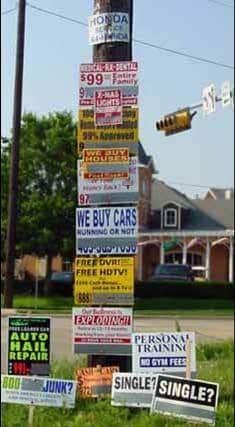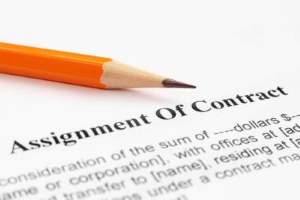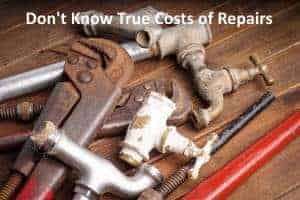Get an as-is cash offer for your home
"*" indicates required fields
You’ve seen the signs I’m sure – “Cash for your House” or “ Maybe you’ve even gotten postcards or letters from some of them. You may have even thought about calling one of the signs posted in your neighborhood.
Maybe you’ve even gotten postcards or letters from some of them. You may have even thought about calling one of the signs posted in your neighborhood.
Julie Terruso a reporter from Philadelphia decided to call on all of the signs she could find. She called 59 different “We Buy Houses” signs and only reached a real person 16 times. Of those, only four would give her their full name, even before they knew she was a reporter. You have to begin to wonder if every We Buy Houses for Cash company is a scam.
Some Realtors® may tell you that these companies are all scams. However, even those agents who tell you this, often have at least one cash investor in their list of phone contacts who buys houses. When your house needs a lot of work or won’t sell for some other reason, these Realtors® call their list of investors.
Sometimes, it makes sense to sell your house to a cash buyer. But, before you do, make sure your buyer is legitimate and not a scam. There are legitimated cash buying companies. Further, these buyers can often help sellers in a difficult situation. Most people reach out to these companies when their house is in need of repairs. But they’re also able to buy a house quickly, or to buy a house that is difficult to sell.
Below are five warning signs to watch for when talking to potential cash buyers that will help you avoid seller’s remorse.
5 Common Sell my Home Fast for Cash Scams
1. No Money Down Scam
Many of the scam buyers don’t have any money at all. This may seem odd since they advertise that they “Buy Houses for Cash”. How could it be that they don’t really have any cash? Let me clue you in to a recent strategy on the weekend get rich quick seminars.
These “how to make money in real estate, no money down seminars” regularly come through Sacramento. These seminars are usually “taught” by some former television house flipping stars or their staff. However, these seminar companies realized that many of their potential attendees did not have the money to actually purchase a house. So they found way to guarantee that their students could buy houses for cash with “No Money Down”. That way they could advertise seminars teaching “How to buy houses with no money down”.
I talked to one student who shelled out $25,000 at one of these seminars. The student admitted to me that he didn’t have any money to buy a house. The seminar was free at a local motel, so what could the person lose? However, when the seminar promoter said, “You can buy our complete buying system at the back table”, the student rushed back and put down his credit card.
In exchange for the student buying the special premiere training, the student was given a letter by the seminar company promising to be the lender to purchase any of the homes the student found.
Bogus Proof of Funds
To a normal seller or real estate agent, this looks very similar to the typical pre approval letter a lender would give a buyer. This letter would say the bank was going to pay for the buyer’s purchase up to some specified amount. What potenital property sellers didn’t know was that the seminar company had no intention of actually funding the purchase of the property, unless it was at a ridiculously low price.
The students were then told to place “Sell My House for Cash” bandit signs around neighborhood. All they had to do then was sit back and wait for the calls, then write offers on lots of houses. The students were told that they would have to write 100’s offers, to get three call backs, and maybe one potential seller. That means they had to write 100 low ball offers. For their effort, they might get three angry phone calls telling them what they can do with their offer, and maybe one desperate seller.
2. Sell your Contract to Someone Else
What the real game is in these seminars is teaching the attendees to get the property into contract for a low ball price, and then sell their contract to another buyer. This process is called “wholesaling” in the industry. In this case, the student attendee is given a letter to show proof of funds to buy your house (assuming they paid $25,000 for the special training).
The students then go out and write an all cash offer for your home. Should you accept their offer, they then take your signed contract and try to sell it to someone else who is willing to pay them more for your home. If the wholesaler can find another buyer, the “assign” the contract to the new buyer and you’re left trying to close escrow with someone you’ve never met before. To add insult to injury, the wholesaler’s the marked up price is often more than the commission you would have paid if had you sold it through a real estate agent.
“The wholesaler’s marked up price is more than the commission you would have paid if had you sold it through a real estate agent.”
Wholesale brokerages
Most of these buyers are not really investors, but are brokerages, who sign a contract with you only to then “lure other investors in to make the purchase”. These wholesalers as they are known, now collect the difference between what you sold the house to them for, and what they sell your contract to their buyer for. See how that works?
Wholesaling has become big business. There’s so much money to be made wholesaling that there are companies spending tens of thousands of dollars a month in advertising dollars trying to buy your home for cash. They do television commercials and put up billboards all around town. Some like Sundae are even backed by Walls Street companies.
Assigning of Contract
Sometimes the difference between what the wholesaler pays you and what they receive from their buyer is $20,000-$30,000. Sometimes it’s only a few thousand dollars.
Is this illegal? No, not really. You and your buyer both entered into a contract willingly for what you considered a fair price. Once you’re in contract, your buyer simply chooses to sell your contract to a 3rd party. This is done regularly in the business world. In contract speak, it’s called “assigning”. For example, if you read your home mortgage carefully, you’ll usually find a sentence saying that your lender has the right to assign or transfer your loan.
Now you may have no problems letting the other guy make a fast buck by buying your house for cash. You may not even mind there selling the contract to another person. After all, you agreed to a price that you felt was fair and you got to move on with your life.
And or assigns clauses
On the other hand, you may not feel that you got a fair price if you knew that your buyer was going to make such a large sum of money selling or assigning your contract. How do you know if your contract may be sold? Just look for the phrase “and or assigns” following the buyer’s name. The contract may also read that the buyer has the right to assign the contract buried in fine print of the contract.
“Beware of the phrase ‘and or assigns’ following the buyer’s name”
Their purchase contract may also have contingencies like “contingent upon business partner’s approval”. One of the warning signs that you’re dealing with a wholesaler is when your buyer wants to come through with another business “partner” for approval. What they’re really doing is shopping your contract to other potential buyers.
3. They Don’t Know the True Costs of Repairs
Okay, y ou have your house sold, or so you think. You’re in contract with someone who said they could buy your house for cash that you called off of some sign or letter. They did a walk through your house and promised to buy your house as-is, any condition, any location, and a offered a fast close.
ou have your house sold, or so you think. You’re in contract with someone who said they could buy your house for cash that you called off of some sign or letter. They did a walk through your house and promised to buy your house as-is, any condition, any location, and a offered a fast close.
Your buyer didn’t do any inspections other than a brief walk through. They may have given you an estimate of what they thought the repair costs were going to be. But, did they really know what repairs were actually needed without a real home inspection? Did they just estimate the repair costs by walking through your house and a quick trip to the local hardware store? Maybe they over estimated the needed repair? Or did they not account for repair contingencies?
I sometimes buy houses from these wholesalers. But most of the time I get calls from them with properties where the numbers just don’t make any sense. They tell me there’s only $15,000 in repairs. However, after I drive over to look at the house, I see that it’s actually closer to $30,000 in repairs. I once asked a wholesaler how they came up with the number for repairs. He simply said, “I walked through Home Depot to get prices” without any consideration for labor costs or contingencies. He only knew the costs for materials.
Inexperienced buyers
Many times these cash buyers have never written a check for any kind of repair. Often, they don’t have any idea how much it really costs to do the repairs because they’ve never paid for repairs themselves.
“Many cash buyers have never written a check for any kind of repair.”
As a result, when they try to shop their contract with you to legitimate buyers, no one wants to buy it. So what happens when one of these “We Buy Houses for cash” guys can’t find a buyer for their contract? They try to renegotiate the purchase price using contingency clauses and repair costs.
Experienced and professional buyers know the true costs of repairs and will only renegotiate if they discover something significant that you haven’t told them about before.
4. Try to Renegotiate the Price after you’re in Contract
 When these buyers can’t find another buyer because they’ve misjudged the actual costs of repairs, then they start renegotiating. They ask for an extension of time to close escrow, or for a price reduction. At some point they may simply cancel their contract with you.
When these buyers can’t find another buyer because they’ve misjudged the actual costs of repairs, then they start renegotiating. They ask for an extension of time to close escrow, or for a price reduction. At some point they may simply cancel their contract with you.
What does that mean for you? You are left without having sold your house, sometimes 30-60 days later. And if you needed to sell your house quickly, you are starting all over.
I see this on a fairly regular basis. I’ll see a house listed for sale on the Multiple Listing Service where the status changed from Active to Pending – meaning it’s in contract with a potential buyer. Then someone will come to me with an offer to sell me their contract for the house. I usually have to say “no thank you” after looking at the real numbers. Then after a period of time, the house is mysteriously back on the market as the potential buyer backs out of the deal. When they couldn’t find a buyer, they used some contingency clause to get out of their contract to buy your home.
5. Don’t have any Reviews or Testimonials
Anyone who is legitimately in business will have a website and a history of previous seller experiences. Not every review will be 5 stars or A+, but their customer experiences tell you what it’s like to work with them. I’m proud to have 5 Star Google reviews and testimonials from homeowners and Realtors® who have worked with us in the past and know how professional we are. You can also look for customer reviews on Yelp, Facebook. I rarely look at the best reviews when researching a product as they may be suspect. Even the best companies sometimes provide a less than perfect customer experience.
Sell your House Fast for Cash Without Being Scammed
Sometimes, you need a cash buyer for your house, or you need to sell your home quickly. However, you don’t need to be jerked around by someone who is playing games. You need to work with a serious professional, who can do what they say, and when they say.
For an example of how a professional house buying company works, you can check out how our company buys houses.
Three signs of legitimate cash buyers
The following are two things that you can do to make sure you are dealing with a legitimate cash buyer. Someone who really can close the deal and help you move on with your life.
-
Look for proof of ability for buyer to purchase
Some cash buyers use loans from third parties or hard money lenders. There’s nothing new about that. But a better cash buyer is one who can show you a copy of a their recent bank statement. If their bank statement shows sufficient funds, you a probably dealing with a buyer who won’t be trying to sell your contract.
-
Check references
Want to really know if a person is a legitimate cash buyer? Ask them the name of their escrow officer and title company that they use. Then, call the title company where they do business. Legitimate buyers pay cash for houses on a regular basis. As a result, they have existing relationships with title companies who will know their reputation. Make sure you deal with someone who has the name of their escrow officer readily available.
3. Legitimate cash buying companies return your call and give you their full name!
It’s hard to believe. These house buyers spend $1 to $2 per sign, then spend their weekends placing the signs all around town. But when you call them, they won’t call you back. Maybe that’s because of all of the angry neighbors and code enforcement people who call about the signs.
There are legitimate companies that buy houses for cash, for a fair price and close in the time frame they promise. You don’t have to sell to a buyer who comes back to renegotiate the price when they have a problem. Or worse, cancels at the last minute. Make sure you are dealing with a professional who does what they say they will do. Do your due diligence before selling your home or you may end up with seller’s remorse.
